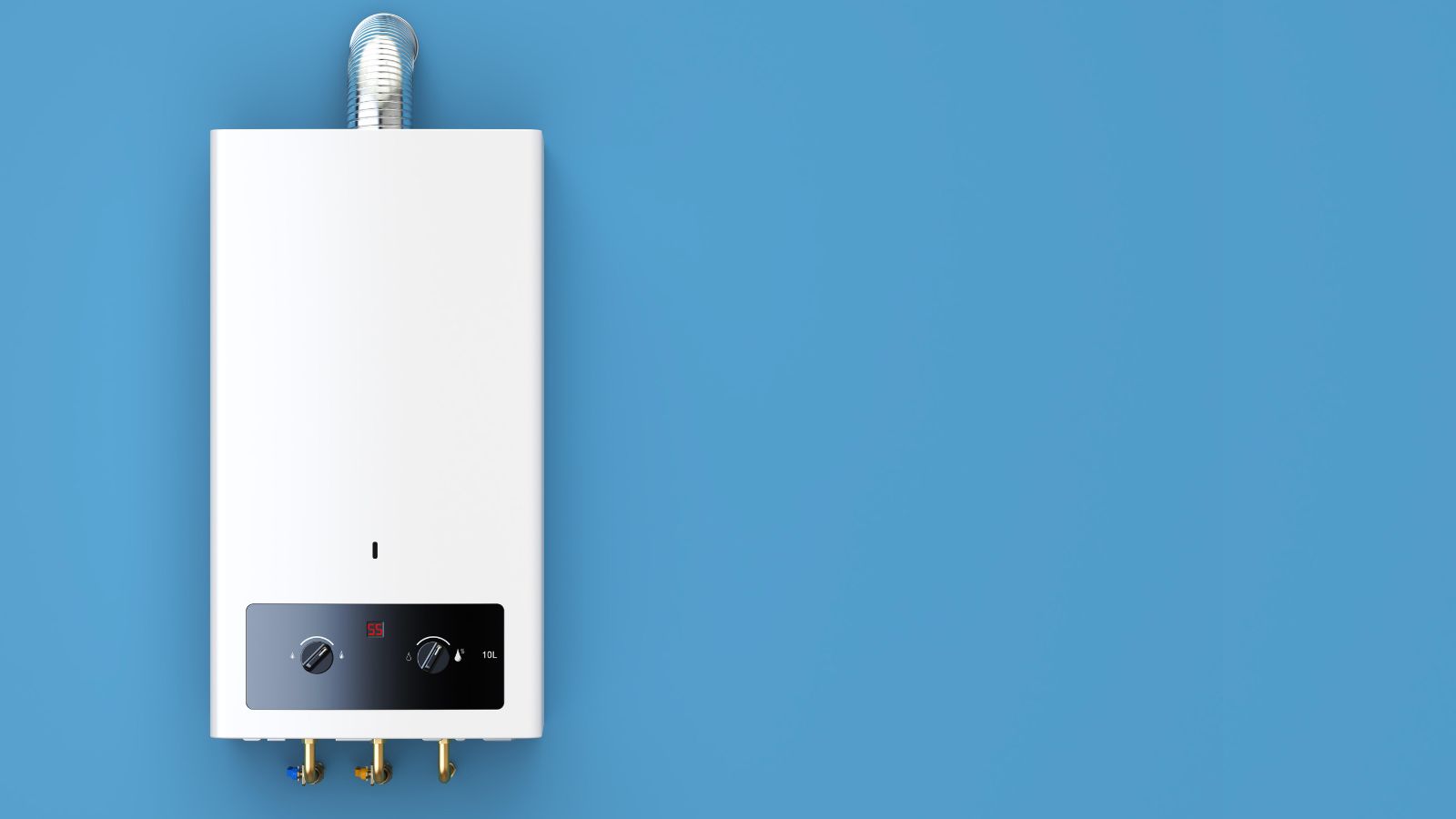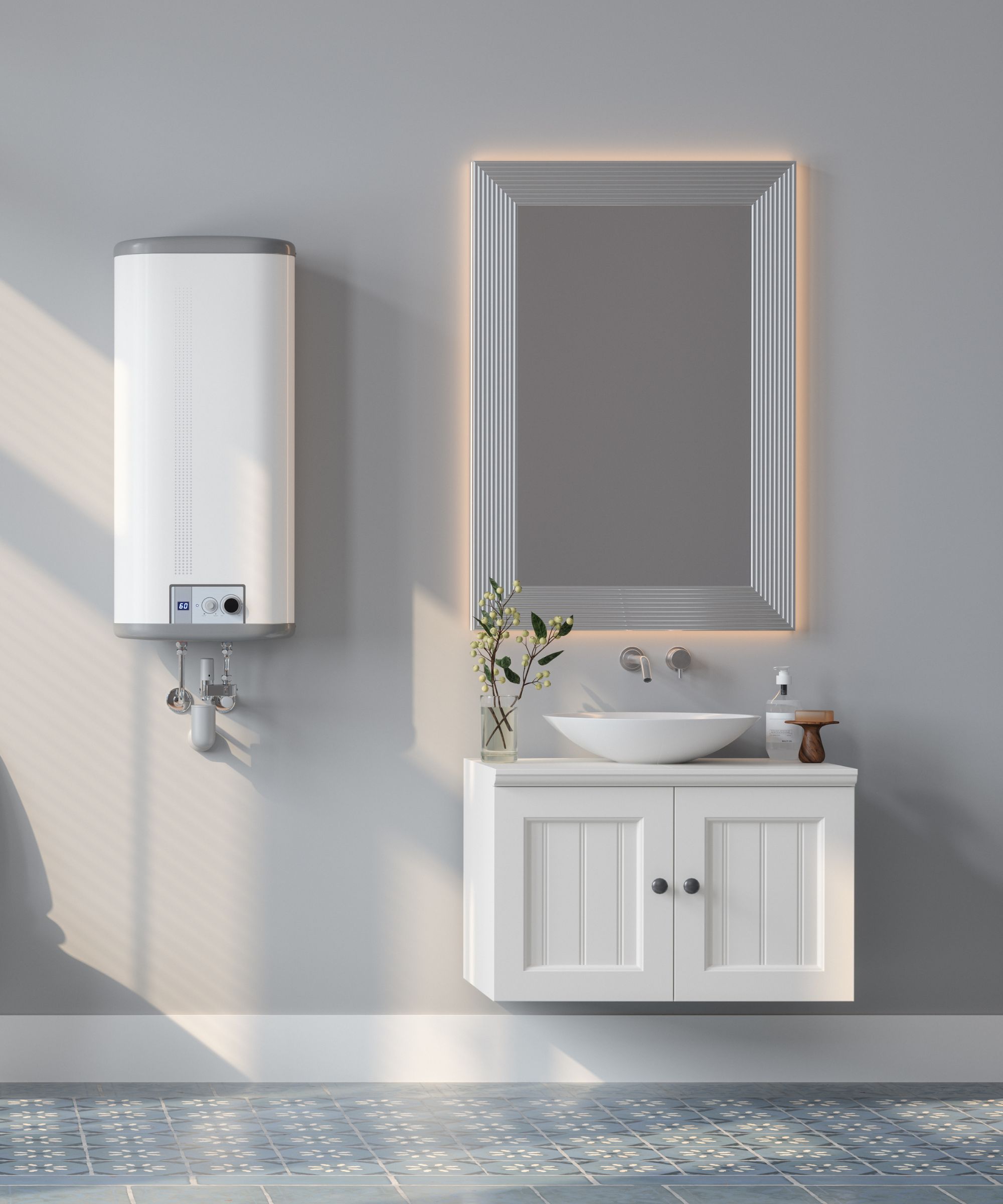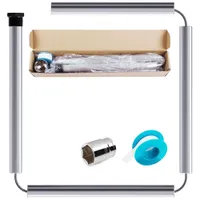How long does a water heater last? The answer could save you from costly breakdowns
Replacing a water heater before it breaks down is essential, and with these tips, you can maximize its lifespan and performance


Design expertise in your inbox – from inspiring decorating ideas and beautiful celebrity homes to practical gardening advice and shopping round-ups.
You are now subscribed
Your newsletter sign-up was successful
Want to add more newsletters?

Twice a week
Homes&Gardens
The ultimate interior design resource from the world's leading experts - discover inspiring decorating ideas, color scheming know-how, garden inspiration and shopping expertise.

Once a week
In The Loop from Next In Design
Members of the Next in Design Circle will receive In the Loop, our weekly email filled with trade news, names to know and spotlight moments. Together we’re building a brighter design future.

Twice a week
Cucina
Whether you’re passionate about hosting exquisite dinners, experimenting with culinary trends, or perfecting your kitchen's design with timeless elegance and innovative functionality, this newsletter is here to inspire
Understanding the lifespan of your hot water heater and recognizing the signs of its decline is crucial for proactive maintenance. By doing so, you can prepare for a replacement before it malfunctions to prevent unexpected breakdowns and the associated water damage to your home and disruptions to your hot water supply.
While there are general estimates for the lifespan of a water heater, keep in mind that various factors, such as type, maintenance, water quality, and usage patterns, influence this. By calculating your water heater's specific timeline, you can better anticipate when a replacement may be necessary.
In this guide, our experts explain the factors that impact a water heater's longevity and offer tips for handling common water heater problems to ensure this home heating type lasts as long as possible.
How long does a water heater last?
'The lifespan of a water heater isn't set in stone and can vary depending on several key factors,' explains Mehdi Khachani, CEO of JMK Plumbing. Firstly, the type of water heater you have plays a significant role:
'Traditional tank water heaters typically last between 8 to 12 years, assuming they receive proper maintenance. Tankless water heaters, on the other hand, tend to have a longer lifespan, averaging between 10 and 20 years. This is thanks to their innovative design, which eliminates the need for a storage tank.'

Mehdi Khachani, a certified plumbing, air conditioning, and general contractor in Florida, blends hands-on expertise with strategic acumen. Dedicated to excellence, Mehdi delivers innovative solutions tailored to clients' needs, ensuring top-tier quality in construction services. With licenses and a commitment to staying ahead, he continues to positively impact the industry in the vibrant State of Florida.
The factors impacting how long it lasts

1. Maintenance
One of the biggest things that affect the actual lifespan of a unit is maintenance. Essential water heater maintenance includes knowing how often you should drain your water heater and flushing the tank accordingly, inspecting for leaks or corrosion, checking the pressure relief valve, and maintaining the proper temperature.
Flushing the tank: 'Water heaters usually look perfect on the outside, even when they fail, but inside there is a constant buildup of sediment that comes from your water source. And every time your water heater tank refills, that sediment is stirred up and scours the inside of the tank and all the parts inside the unit, wearing away any protective linings and eventually the tank itself,' explains Hendrik Vandepoll, MD of Service Force Plumbing. 'The best practice is to flush the water heater once a year, or more if there is a lot of sediment in your water, and the process is within the abilities of most homeowners.'
Design expertise in your inbox – from inspiring decorating ideas and beautiful celebrity homes to practical gardening advice and shopping round-ups.
Preventing corrosion: Checking and replacing the anode rod every 3 to 5 years or as needed can prevent the tank from corroding prematurely. This is a metal component placed inside your water heater that is designed to attract minerals and other destructive elements in the tank to help prevent corrosion.
Checking the pressure: The pressure relief valve is a safety feature that prevents excessive pressure from building up in the tank. However, if it is not functioning properly, it can lead to issues such as leaks or even tank explosions, making it an important component to monitor for issues.
Ensuring the proper temperature: Maintaining a reasonable temperature and proper ventilation are critical for avoiding overheating and ensuring efficient performance. Maintain a temperature of around 120°F (49°C). This temperature is sufficient for most home requirements while also lowering the risk of overheating.
Aluminum Zinc Anode Rod| $26.99 from Amazon
This anode rod is compatible with most heaters. Its flexible design makes it easy to install, and it includes a roll of pipe sealing tape.
2. Quality of Water
Hard water with high mineral content can accelerate corrosion and sediment buildup, shortening the lifespan of a water heater.
Installing a water softener or using regular descaling treatments can help avoid scale buildup from hard water, and performing periodic flushing can mitigate this issue and extend the life of your unit. You can use this Chromex Tankless heater descaler kit from Amazon.
Additionally, Constantin Geambasu, owner of Water Rehab, recommends: 'One of the best ways to extend the life of your water heater is to install a whole-house water filtration system.
'This system will remove the total dissolved salts, dirt, minerals, and chemicals that are prevalent in many municipal water supplies. These materials eat away at your water heaters and diminish their lifespan. These materials are removed by a whole-house filtration system. Installing a whole-house filtration system can double the life expectancy of your water heater.'
3. Usage Patterns
Heavy usage, such as frequent hot water demands or overworking the water heater beyond its capacity, can strain the system and lead to premature failure.
Choosing a water heater that is the right size to match the household's needs is crucial.
4. Environmental Factors
The environment in which the water heater operates can also influence its lifespan. For example, exposure to extreme temperatures, high humidity, or corrosive chemicals can impact its durability.
Providing insulation for the water heater can protect it from extreme temperature fluctuations and maintain consistent operating conditions to extend its lifespan. You can find easy-to-install waterproof insulation blankets online, such as this Frost King Water Heater Blanket from Walmart. This is also a great way to make your water heater more efficient to cut energy bills.
Additionally, ensuring the water heater has proper ventilation around it will prevent a buildup of humidity and moisture. This helps to prevent the internal components from rusting.
Of course, where your water heater is installed in the first place will make a big difference here. It should be somewhere away from extreme temperatures and direct sunlight.
5. Quality of the unit
Another big influence in the life of a water heater is, of course, the quality of the unit you install.
Roy Barnes, Co-MD of Service Force Plumbing, says: 'There is a measurable difference between the water heaters sold at a big box store and the ones sold by plumbing supply companies – even if they are made by the same brand. The steel tank tends to be thicker, the number and quality of protective coatings are better, and all the parts are metal, versus big box models that tend to substitute plastic. Now, I can't say that a given big box water heater won't serve 8-12 years with no issues, but there's a much higher chance that it won't versus a quality model from a plumber supply company.
Upgrading to a more energy-efficient appliance, such as a heat pump or solar-powered system, reduces utility bills and can also prolong the equipment's lifespan due to reduced strain and wear.
6. Quality of installation
'Quality of installation is crucial in determining how well your water heater performs over time,' warns Mehdi Khachani.
'Ensuring that your unit is installed correctly by certified professionals can greatly impact its longevity and efficiency.'
Warning signs your water hear is aging
Finally, it's essential to be vigilant for any signs of aging or malfunction in your water heater. These include rusty water, strange noises, leaks, and inconsistent temperatures.
While these indicators may not necessarily mean the water heater has fully broken down, they serve as warning signs that the unit is nearing the end of its service life. This will allow for timely maintenance or repairs which can help extend the lifespan or replacements before the aging water heater before it fully breaks down to avoid problems.
If possible, you should get your water heater periodically inspected by a qualified plumber or technician to identify potential issues early on. This allows for timely repairs or replacements and can extend the water heater's overall lifespan.
Additionally, testing periodically for water quality can help detect issues that may accelerate corrosion or sediment buildup in the water heater. Addressing water quality issues promptly can extend the equipment's lifespan.

Lola Houlton is a news writer for Homes & Gardens. She has been writing content for Future PLC for the past six years, in particular Homes & Gardens, Real Homes and GardeningEtc. She writes on a broad range of subjects, including practical household advice, recipe articles, and product reviews, working closely with experts in their fields to cover everything from heating to home organization through to house plants. Lola is a graduate, who completed her degree in Psychology at the University of Sussex. She has also spent some time working at the BBC.
